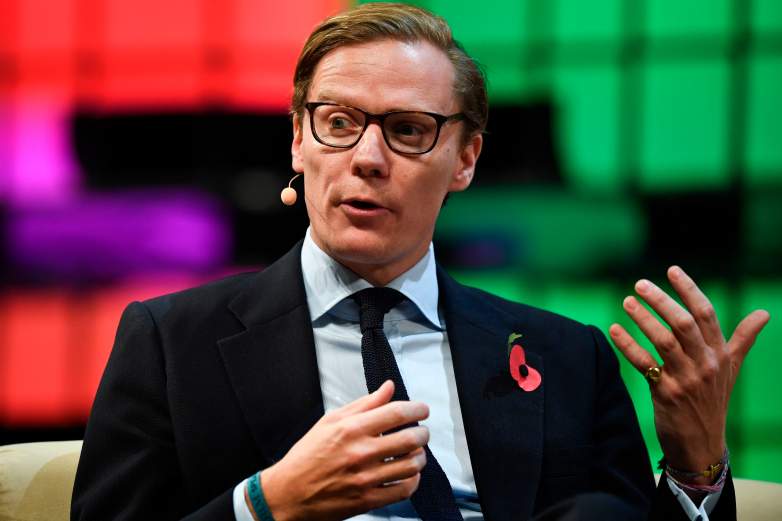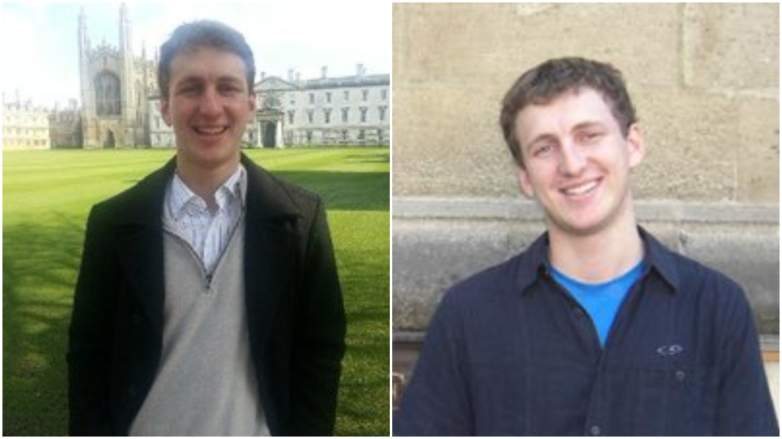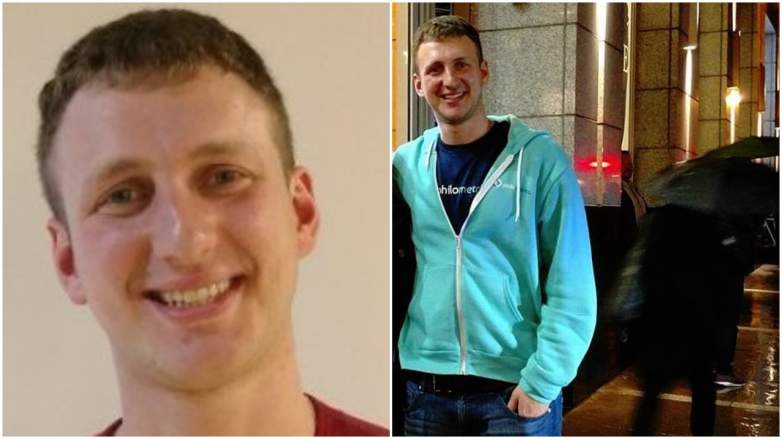
A Cambridge University psychology professor harvested personal data from millions of Facebook users and then passed on that information, much of which was obtained without the users consent, to a political strategy company with links to President Donald Trump’s campaign, Steve Bannon and the billionaire conservative campaign donors Robert and Rebekah Mercer, according to reports from The Guardian and The New York Times.
Aleksandr Kogan, 32, worked with Cambridge Analytica, a Mercer-backed firm that claims to have psychological and political profiles of millions of American voters, which can be used to target messages to them. Cambridge Analytica was part of the Trump campaign’s data operation during the 2016 election, the newspapers report.
Facebook suspended Cambridge Analytica, and its affiliated British company, SCL Group, along with Kogan, for possibly violating its terms of service and is investigating the matter. The firm is also under investigation in both the U.S. and the U.K., according to The Guardian and The Times. Both newspapers spoke with whistleblower Christopher Wylie, who left the company he co-founded in 2014.
Kogan describes himself on a tech-funding website by saying, “I’ve worked in science and tech startups for the past decade. I’m trained as a social psychologist with a strong focus on quantitative methods. In other words, I love math, people, and fuzzy problems.”
He adds on a personal blog, “Much of my research focuses on well-being and kindness, but more recently, I’ve been interested in understanding how we can scale survey research without scaling the costs :-p. … Born in the Soviet Union, I split my childhood half there and half in NYC where my family immigrated. I currently live in the Bay Area.”
According to the University of Singapore, where Kogan gave a talk in 2014, “Alex’s research interests are broadly centered on the biological, contextual, cultural, and experiential forces that shape human kindness and well-being. Alex’s work has been featured in numerous media outlets, including BBC, Time, CNN, and Discovery Magazine.”
Here’s what you need to know about Kogan and his role in the Cambridge Analytica controversy:
1. Kogan Says Facebook Is Making Him a ‘Scapegoat’
Aleksandr Kogan told CNN’s Anderson Cooper that Facebook is making him a “scapegoat.” He said he suspects suspects thousands of other developers and data scientists have used similar methods to gather information on Facebook users.
“Using users’ data for profit is their business model,” he told CNN. Kogan said he does not believe he broke Facebook policies and said he would be willing to testify before Congress or speak to authorities. He said he didn’t know what Cambridge Analytica would be doing with the data he gave them.
“I was pretty heavily silo’d as far as anything as funders or clients, I found out about Donald Trump just like everyone else, through the news,” he said. “They initially approached me to do some consulting work for them, mostly on surveys and then this project was born to collect new data. And they guided us through it. I was an academic, I didn’t know anything about starting a company. Chris (Wylie) said ‘go start a company,’ he told me how to do it, he explained, ‘well here’s the terms of service you need to put into this app and basically assured all of this was common place and best practice.”
Kogan told CNN he knew it would be used for political consulting, but didn’t know anything beyond that.
“There was a lot of ambiguity of what that meant,” he said.
He told CNN there could be a “silver lining” in the current controversy as it creates a discussion about how social media companies like Facebook use personal information to sell ads.
“The broader question is the elephant in the room,” he said, telling CNN that in exchange for free services like Facebook, users become the product that is sold to advertisers. “Are we concerned with being the product?”
Facebook said in a statement Friday that Kogan, “lied to us and violated our Platform Policies by passing data from an app that was using Facebook Login to SCL/Cambridge Analytica, a firm that does political, government and military work around the globe. He also passed that data to Christopher Wylie of Eunoia Technologies, Inc.”
According to Facebook, Kogan, “requested and gained access to information from people after they chose to download his app,” which was called “thisisyourdigitallife.”
The app, “offered a personality prediction, and billed itself on Facebook as “a research app used by psychologists.” Approximately 270,000 people downloaded the app. In so doing, they gave their consent for Kogan to access information such as the city they set on their profile, or content they had liked, as well as more limited information about friends who had their privacy settings set to allow it.”
According to Facebook, “When we learned of this violation in 2015, we removed his app from Facebook and demanded certifications from Kogan and all parties he had given data to that the information had been destroyed. Cambridge Analytica, Kogan and Wylie all certified to us that they destroyed the data.”
Recent information led to the suspension, Facebook said:
Several days ago, we received reports that, contrary to the certifications we were given, not all data was deleted. We are moving aggressively to determine the accuracy of these claims. If true, this is another unacceptable violation of trust and the commitments they made. We are suspending SCL/Cambridge Analytica, Wylie and Kogan from Facebook, pending further information.
We are committed to vigorously enforcing our policies to protect people’s information. We will take whatever steps are required to see that this happens. We will take legal action if necessary to hold them responsible and accountable for any unlawful behavior.
According to The New York Times and The Guardian, Kogan also obtained data about the friends of those who gave consent to the app, leading to the collection of information from about 50 million others, the bulk of which did not know that their information had been provided to him. About 30 million psychological profiles were built from that data, the newspapers reported.
The Guardian reports that Cambridge Analytica spent about $1 million to fund Kogan’s effort to harvest the Facebook data. He was allowed to keep a copy of the data for his academic research. Wylie told The Guardian that Kogan was able to get the OK to continue collecting the data from Facebook because he told the company it was only being used for research.
He told The New York Times that the data was the “saving grace” for Cambridge Analytica’s plan to deliver a way to influence elections through data that the Mercers were seeking.
“We wanted as much as we could get. Where it came from, who said we could have it — we weren’t really asking,” he told The Times.
“They want to fight a culture war in America,” Wylie told the newspaper. “Cambridge Analytica was supposed to be the arsenal of weapons to fight that culture war.”
Cambridge Analytica previously worked with Senator Ted Cruz’s presidential campaign while the Mercers were backing him. The Guardian revealed in 2015 that Cruz was connected to SCL and Kogan. In March 2017, The Intercept reported that Facebook failed to protect 30 million users from having their data harvested by Global Science Research.

GettyCambridge Analytica’s chief executive officer Alexander Nix gives an interview during the 2017 Web Summit in Lisbon on November 9, 2017.
Bannon and the Mercers have not commented since The Guardian and The Times reports were published or in the wake of the Facebook suspension. Cambridge Analytica said in a statement:
Cambridge Analytica fully complies with Facebook’s terms of service and is currently in touch with Facebook following its recent statement that it had suspended the company from its platform, in order to resolve this matter as quickly as possible.
Cambridge Analytica’s Commercial and Political divisions use social media platforms for outward marketing, delivering data-led and creative content to targeted audiences. They do not use or hold data from Facebook profiles.
In 2014, we contracted a company led by a seemingly reputable academic at an internationally-renowned institution to undertake a large scale research project in the United States.
This company, Global Science Research (GSR), was contractually committed by us to only obtain data in accordance with the UK Data Protection Act and to seek the informed consent of each respondent. GSR was also contractually the Data Controller (as per Section 1(1) of the Data Protection Act) for any collected data. GSR obtained Facebook data via an API provided by Facebook.
When it subsequently became clear that the data had not been obtained by GSR in line with Facebook’s terms of service, Cambridge Analytica deleted all data received from GSR.
We worked with Facebook over this period to ensure that they were satisfied that we had not knowingly breached any of Facebook’s terms of service and also provided a signed statement to confirm that all Facebook data and their derivatives had been deleted.
The company added, “No data from GSR was used by Cambridge Analytica as part of the services it provided to the Donald Trump 2016 presidential campaign. Cambridge Analytica only receives and uses data that has been obtained legally and fairly. Our robust data protection policies comply with US, international, European Union, and national regulations.”
You can read more about Cambridge Analytica at the link below:
2. He Was Born in Moldova, Lived in Moscow Until He Was 7, Moved to the United States & Is Now a U.S. Citizen Living in the Bay Area

Aleksandr Kogan.
Kogan was born in Moldova, in the former Soviet Union, and lived in Moscow, Russia, until he was 7, according to The Guardian. He lived in the New York City area and in Bergen County, New Jersey, public records show. He has since become a U.S. citizen.
Kogan now lives in the San Francisco Bay area. He briefly changed his name to Aleksandr Spectre after he got married in Singapore. On Facebook, he explained that the name change was not because of negative coverage related to the 2015 article in The Guardian, but as a symbol of their partnership.
“We chose Spectre as a derivative of Spectrum,” he wrote on Facebook. “We wanted to find a last name tied to light because (a) my wife and I are both scientists and quite religious and light is a strong symbol in both, (b) we got married in the international year of light, (c) we are a multi-ethnic family (so multiple colors of the spectrum) and (d) we just thought it sounded really cool. Changing our last name was a symbol of partnership and unity across racial, cultural and philosophical perspectives.”
His wife is from Singapore and they met at Cambridge University, where she was studying for her Ph.D. He has since gone back to using the name Kogan, and it is not clear if he is still married.
3. Kogan Studied Psychology at Berkeley, Completed His Ph.D at the University of Hong Kong & Became a Lecturer at the Cambridge in 2012
Alex Kogan studied psychology at the University of California Berkeley, graduating in 2008, according to his Linkedin profile. He then completed his Ph.D in psychology at the University of Hong Kong in 2011.
He spent a year as a postdoctoral fellow at the University of Toronto and Kogan then began working as an assistant professor at Cambridge University in 2012.
According to Cambridge’s Department of Psychology, which uses his Aleksandr Spectre name:
Most broadly, Dr. Spectre’s research focuses on the biology and psychology of human kindness and well-being. To that end, much of his research has centered on exploring prosocial emotional processes, including positive emotions and selflessness, across a variety of intra- and interpersonal contexts. Dr. Spectre uses a diverse set of methodological approaches across psychological, behavioral, genetic, and physiological levels of analysis, employing a multitude of paradigms (dyadic interactions, daily experience, psychophysiological recording, experimental, and thin-slicing), and distinct cultural groups. Presently, Dr. Spectre’s research program focuses on three areas: (a) the biology of prosociality, (b) close relationships and love, and (c) positive emotions and well-being.
He remains at Cambridge as a senior research associate. According to CNN, Cambridge University said the app used to harvest Facebook data was developed by Kogan’s company, Global Science Research, and it was for commercial, not academic research.
Facebook provided CNN with the description of the app that Kogan submitted in 2014, which read, “This app is part of a research program in the Department of Psychology at the University of Cambridge. We are using this app for research purposes – learning about how people’s Facebook behaviour can be used to better understand their psychological traits, well-being, health, etc and overcome classic problems in social science. Users of the app will be presented with a description of the types of data we gather and the scientific purpose of the data. “Users will be informed that the data will be carefully protected and never used for commercial purposes.”
A university spokesperson told the Cambridge News:
We are aware that Dr Kogan established his own company, Global Science Research (GSR), of which SCL/Cambridge Analytica was a client. It is not uncommon for Cambridge academics to have business interests, but they must satisfy the university that these are held in a personal capacity and that there are no conflicts of interest. It is our understanding that the thisisyourdigitallife app was created by GSR. Based on assurances from Dr Kogan as well as the evidence available to us, we have no reason to believe he used University data or facilities for his work with GSR, and therefore that there is no reason to believe the University’s data and facilities were used as the basis for GSR’s subsequent work with any other party.
The spokesperson added, “It is important to make clear that, despite its name, Cambridge Analytica has no connection or association with the university whatsoever.”
4. He Is Also the Founder of a Company Called Philometrics, a ‘Cutting Edge Survey Software Company’ Looking to Combine ‘High End Survey Functionality With Big Data Methods’
Kogan now runs a company based in the Bay Area called Philometrics, which describes itself as a “cutting-edge survey software that combines high end survey functionality with big data methods.” The company was founded in 2015.
On Linkedin, the company writes:
We are a group of social scientists and computer engineers who are passionate about transforming survey research. Our founders began as academics at the University of Cambridge, working on finding scalable ways to understand how people think. The survey–a 120 year old instrument of choice for most social scientists–became the focus of this work. We found that a combination of big data, machine learning, and survey acumen could lead to remarkable results: Hundreds of thousands of responses to virtually any survey – and at a fraction of the typical cost.
Philometrics was founded to help bring our technology to the masses. We are passionate about empowering researchers to do the most cutting edge work they can–and without adding big barriers to entry. Philometrics was built on these ideas. We wanted to be powerful, innovative, fast, and easy to use. We wanted to optimize research through the power of online behavioural big data analysis – from a study of 1000 respondents we aim to give you the insight of 100,000+ people!
Our innovative SurveyExtender method produces insight on a revolutionary scale, empowering clients to understand people, markets, and competitors more deeply and accurately than ever before. Philometrics’ team is formed of experienced business analysts and leading academic researchers, all of whom are experienced in helping academics and companies utilize the power of detailed survey insight.
The company explains on Angel.co, “We were founded by University of Cambridge academics aiming to bring their research on AI-based forecasting of fuzzy traits (e.g., survey responses, interests) to industry. We offer a number of B2B and B2C products and services. Our core software offering, philometrics.com, provides a web do-it-yourself survey building suite with AI superpowers. We also work with a number of commercial partners to help augment their internal insights and collaborate on building consumer apps.”
In 2014, Kogan gave a talk at the University of Singapore where he bragged about having access to a sample of 50 million individuals for his research:
Big data is increasingly becoming a hot topic in the social sciences, but what is it and why should we care? This talk focuses on answering these questions and suggests that big data is likely to revolutionize how we do our research. I will discuss how big data can be collected, stored, and analyzed, and the types of new insights it can provide to social scientists. I focus specifically on Facebook data and two datasets my lab is currently work with: (a) a sample of 50+ million individuals for whom we have the capacity to predict virtually any trait, and (b) a macro-dataset of every friendship made in the world on Facebook from 2006-2012 by all Facebook users at the national-aggregate level. New empirical findings will focus on prosociality, well-being, and health, though the talk’s central aim is to demonstrate how big data can be applied to traditional social science research questions.
5. Kogan Worked for St. Petersburg State University in Russia, Where His Grandfather Was the Chief of a Physiology School

Alex Kogan.
Alex Kogan has worked for St. Petersburg State University in Russia, according to The Guardian. Kogan did tell the head of the psychology department at Cambridge about his work for the Russian university, the newspaper reports. He took Russian grants to fund research into social media, with one research piece titled, “Stress, health, and psychological wellbeing in social networks: cross-cultural investigation,” according to The Guardian.
Cambridge told The Guardian, “We understand that Dr Kogan informed his head of department of discussions with St Petersburg University regarding a collaboration; it was understood that this work and any associated grants would be in a private capacity.”
According to The Guardian, Kogan kept his work in Russia private. One colleague told the newspaper, “I am very surprised by that. No one knew.” That work was also not listed on a 10-page CV that Kogan posted on a university website in 2015.
Online posts show Kogan lecturing in Russian, the newspaper reports, including a talk titled, “New methods of communication as an effective political instrument.”
He told The Guardian, “Nothing I did on the Russian project was at all related to Cambridge Analytica in any way. No data or mode.”
Editor’s Note: A previous version of this article incorrectly stated that Kogan’s grandfather was the chief of a physiology school in Russia and has a neurocybernetics lab named after him there, based on incorrect reporting from another source. We regret the error.


